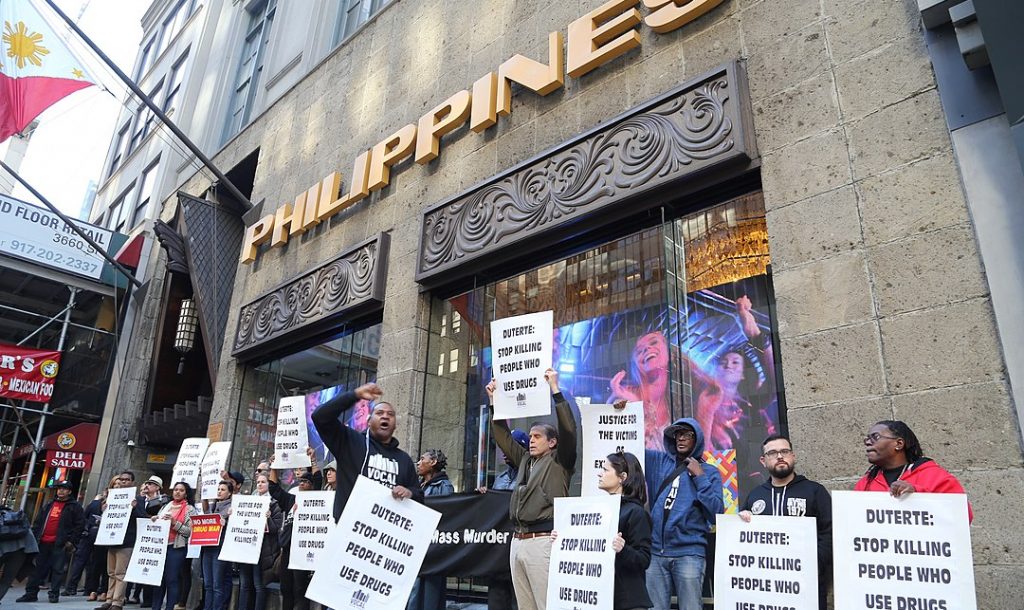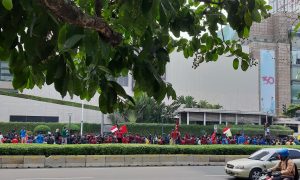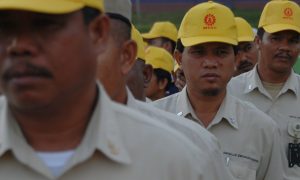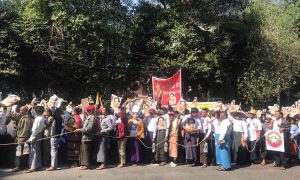Is the death penalty—judicial or extra-judicial—an effective deterrent of the drug epidemic? Malaysians and policymakers are unable to agree on whether some crimes, such as drug trafficking without violence, should be penalised by death. The Malaysian government has stated that the mandatory death sentence, which is statutory for certain offences, including nonviolent drug trafficking convictions, is likely to be abolished. This would give judges the discretion to impose a different punishment for the 23 crimes that carry the death sentence. Many ASEAN nations are wrestling with the question of whether or not capital punishment is effective.
In the Philippines the number of civilians killed in the drug war from July 2016 to March 2019 “appears to be between 12,000 and 30,000.” Former President, Rodrigo Duterte named 44 mayors, vice mayors and other officials in May 2019 as being “narco politicians”. But when his son and Davao’s Vice Mayor, Paolo Duterte, was accused of aiding and abetting a seized shipment of $125 million worth of narcotics from China for the Philippines market, Duterte senior was less enthusiastic to carry his extrajudicial killings. On the other hand, also in 2019, the police executed two former governors, both of whom had been designated as “narco politicians” on Duterte’s watch list.
The Malaysian case is no different. Tan Sris and Datuks (titles conferred to dignitaries by Malaysian heads of state) lead the drug cartels, at least in the case of the RM 2.4 billion (0.55 billion USD) confiscated from the North Butterworth Container Terminal (NBCT) in September 2019. These Malaysian drug lords are able to attain these titles because they too were probably able to hide the fact that they are laundering money by, among other things, running pawn shops, shipping companies, and hotels. The continuous arrests of policemen involved in drug dealing and consumption shows a symbiotic relationship between law enforcement and the drug related crime networks. Malaysia has to play a more important role in going after the drug lords because, as mentioned by the Inspector General of Police (IGP) of the Royal Malaysian Police (RMP), the country is a transit point for drugs being sent to other countries.
The thinning of the grey lines between the executive and drug lords by the likes of Myanmar’s Lo Hsing Han further exacerbates the problem. In the 1960s, he was given permission to traffic opium and heroin in exchange for commanding a local militia formed by then-dictator Ne Win to battle communists on the country’s borders with China. Meanwhile, Lo sided with the insurgents during the next decade, and he was captured in Thailand in 1973 and condemned to death for treason. His sentence was eventually reduced to life in prison, and he was released under a general amnesty in 1980. Thus, started the second half of his career, during which he was reported to continue his heroin business, using poor farmers from Myanmar’s Shan state and northern Thailand to cultivate opium for him. When he turned around and decided to disassociate himself from his life of crime He found receptive partners in Thailand’s business communities, multi-national corporations and governments, notably in Malaysia, Hong Kong, and Singapore. One such example is Asia World Co Ltd, a major infrastructure conglomerate in Myanmar partially owned by Lo’s son, Steven Law, with which the Singapore government had a joint venture. That venture has been blacklisted by the US Office of Foreign Assets Control (OFAC).
Evidently, there is a transnational criminal network that controls an extensive operation involving air cargo and shipping services which send drugs to Indonesia, Taiwan, Hong Kong, and Australia. The 2017 arrest of Xaysana Keopimpha – a Lao dubbed the “ASEAN drug lord”, exposed a major drug ring that had links to insurgents in Thailand’s Deep South.
While most ASEAN nations turn a blind eye to drug lords and cartels, they are keener to execute naive teenage drug mules. Nagaenthran Dharmalingam, for example, was a Malaysian with learning disabilities who was convicted of narcotics trafficking in 2010 and whose case drew international attention. He was recently executed at Singapore’s Changi prison.
The question is, why are countries like Malaysia, Singapore and the Philippines are so quick to impose death penalties and extrajudicial killings for drug mules and drug peddlers, but not as effective in taking action against the drug lords?
In Singapore there is an over-representation of Malays condemned to death. Between 2010 and 2021, 50 of the 77 persons condemned to death were Malays, 15 Indians, 10 Chinese, and two others. Due to a lack of transparency, we may extrapolate from publicly accessible statistics that Indian men are overrepresented in Malaysian prisons and are particularly vulnerable to custodial mortality. In the Philippines, the policy of executing individuals without trial, implemented by Duterte, disproportionately harmed the poor.
The fact that dirty money needs to be cleaned to make legitimate “real world” purchases, provides opportunities for law enforcement agencies in ASEAN to collectively monitor drug lords and drug traffickers. Despite the fact that drug trafficking syndicates are always inventing new strategies to conceal their operations, the police have been successful in locating and arresting these drug lords. They have been known to operate pawn shops, shipping companies, hotels and even bundle clothing stores. Additionally, the drug trafficking routes and ‘rat lanes’ along the border states such as the Southern Thailand – Malaysia requires joint efforts and efficient patrolling. Drug mule trafficking can only be eliminated if politicians and law enforcement agencies work together to combat the web of organised crime and bring drug lords to justice. While the law says that drug mules must be executed, drug lords dine with legislators and discuss capitalist methods to exploit people and launder money.
 Facebook
Facebook  Twitter
Twitter  Soundcloud
Soundcloud  Youtube
Youtube  Rss
Rss 



